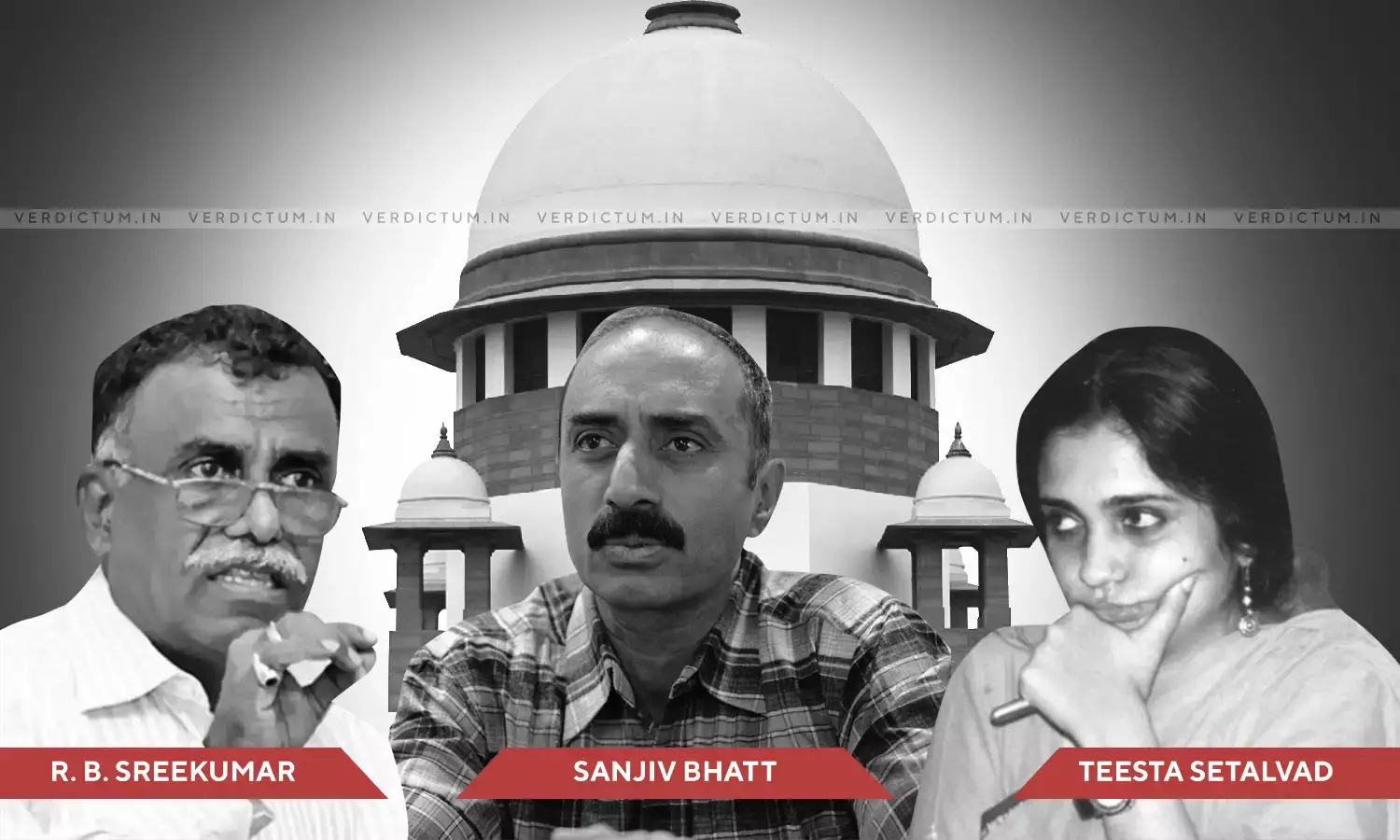Gujarat Riots: Protagonists Sitting In Air-Conditioned Office Know Little About Ground Realities- SC Calls For Action Against Those Involved In Abuse Of Process
The Bench of Justice A M Khanwilkar, Justice Dinesh Maheshwari and Justice C T Ravikumar has come down heavily on who abused the process of Court to "keep the pot boiling" in the aftermath of the 2002 Gujarat riots.
While dismissing the Appeal filed by Zakia Jafri seeking a probe into the alleged larger conspiracy behind the 2002 Gujarat riots, the Court came down heavily against those who attempted to distort the actions of the state administration during the riots.
"The protagonists of quest for justice sitting in a comfortable environment in their air-conditioned office may succeed in connecting failures of the State administration at different levels during such horrendous situation, little knowing or even referring to the ground realities and the continual effort put in by the duty holders in controlling the spontaneous evolving situation unfolding aftermath mass violence across the State", the Court said while dismissing the claims of former cops Sanjiv Bhatt and R.B. Sreekumar about alleged illegal instructions given by the Chief Minister to police officers immediately after the Godhra carnage.
The Bench quoted from Reg v. Hodge (1838) 2 Lew 227 thus: "The mind was apt to take a pleasure in adapting circumstances to one another, and even in straining them a little, if need be, to force them to form parts of one connected whole; and the more ingenious the mind of the individual, the more likely was it, considering such matters, to overreach and mislead itself, to supply some little link that is wanting, to take for granted some fact consistent with its previous theories and necessary to render them complete."
The Court held that the linking of failures of the administration is not enough to entertain a suspicion about hatching of criminal conspiracy at the highest level.
The Court cited the example of countries with the best medical facilities crumbling and their management skills being overrun under the pressure during the Covid-19 pandemic. Overrunning of State administration is not an unknown phenomenon, "can it be said to be a case of hatching of criminal conspiracy?", the Court asked.
The Court said that there was a "coalesced effort of the disgruntled officials of the State of Gujarat alongwith others was to create sensation by making revelations which were false to their own knowledge", while adding that the falsity of their claims had been fully exposed by the SIT after a thorough investigation.
The Court noted that the present proceedings have been pursued for the last 16 years (from submission of complaint dated 8.6.2006 running into 67 pages and then by filing protest petition dated 15.4.2013 running into 514 pages), "including with the audacity to question the integrity of every functionary involved in the process of exposing the devious stratagem adopted (to borrow the submission of learned counsel for the SIT), to keep the pot boiling, obviously, for ulterior design".
"As a matter of fact, all those involved in such abuse of process, need to be in the dock and proceeded with in accordance with law", the Court directed.
The Court kept open the question of locus Teesta Setalvad in the riot-related cases, "to be decided in an appropriate case", after the Respondents opposed her intervention in the matter stating that "she has been vindictively persecuting this lis for her ulterior design by exploiting the emotions and sentiments of appellant – Zakia Ahsan Jafri, the real victim of the circumstances".
In its Judgment, the Court has dismissed the claims of Zakia, including the one based on the statements of Sanjiv Bhatt and R.B. Sreekumar that in a meeting held on February 27, 2002, on the day of the Godhra incident, then Chief Minister Narendra Modi asked the senior police officials to allow Hindus to vent their anger on the minority community. (read report)












